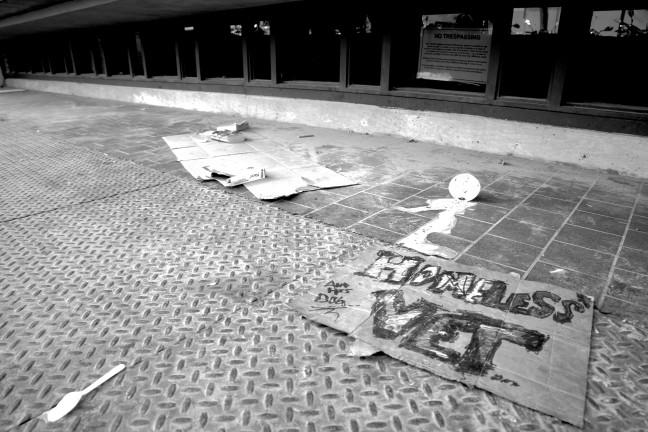Governor Tony Evers gave his support to bills aimed to help homeless people through additional funding for various social programs, but they must gain additional approval from the Wisconsin State Senate to go into action.
Michael Basford, director of the Wisconsin Department of Administration Interagency Council on Homelessness, said the bills aim to use $3.75 million to support existing programs and create new ones for those currently facing homelessness. New programs include care management program services.
Federal statistics on homelessness from 2019 indicated the homeless population in Wisconsin totals 4,907 people. While this is a decrease from the 2016 count of 5,685, the need for programs specifically targeted toward homeless folks is increasing as each year passes.
Homeless shelters all over Wisconsin face a demand they simply cannot meet. As the dreaded Wisconsin winter approaches, temperatures continue to drop, and this results in more families seeking shelters to survive.
As temperatures drop below 20 degrees, homeless shelters do not turn away people and families seeking a warm place to stay, barring extreme situations. But as more shelters in Madison continue to fill over capacity, the previously envisioned “extreme situation” may become a reality, resulting in people being exposed to fatally cold conditions.
According to the Centers for Disease Control and Prevention, hypothermia can set in even at temperatures above 40 degrees. This means even now, homeless people are vulnerable without shelter. This is especially the case for young homeless children, who may suffer fatal conditions if they remain outside in the Wisconsin winter for an extended period of time.
As the homelessness crisis continues to grow in urgency, another phenomenon has risen as well — the prevalence of homeless college students has become a relatively underreported epidemic.
A 2019 report found that about half of students surveyed at colleges and universities in 24 different states struggled with food and shelter insecurity. In a 2017 study, the Madison College Student Senate found one third of the 1,144 Madison College students surveyed skipped meals because they could not afford to eat, and one-fourth reported going an entire day without eating due to financial difficulties.
The difficulties associated with homelessness, such as being unable to regularly eat meals, overworking to meet the bare minimum living standards and constantly fearing and worry ing about where they can sleep, contribute to students’ stress levels and academic performance.
As shelters are continually limited in their ability to help the homeless, homeless college students may end up having to drop out and continue a cycle of chronic homelessness.
As such, the proposed bills — while necessary to use some of the funding to provide immediate relief for homeless shelters — need to also focus on preventative and curative measures so those who are currently homeless aren’t stuck in a perpetual cycle.
Further, programs need to address individuals and families living in poverty who are on the verge of becoming homeless. For example, programs should address food insecurity and build more affordable housing programs for college students.
There are several misconceptions surrounding homelessness, including those vulnerable to becoming homelessness. Joseph Volk, Executive Director of the Wisconsin Coalition Against Homelessness, said the path of homelessness is a relatively easy one to end up on.
“Many of us are only a few last paychecks from being in the situation of not knowing where we’re going to stay,” Volk said.
Basford further described the role mental illness plays in homelessness, emphasizing the need for mental health support at UW.
Both Basford and Volk expressed frustrations with how slowly progress is moving in terms of accessing the needed funds to allocate to various homeless programs. Their sentiment accurately reflects how the rest of the UW campus should feel about the state of homelessness programs.
A stronger push from students themselves is needed to provide better provisions for homeless students at the UW campus and in Wisconsin overall. It is important to support your fellow students by demanding the bills addressing homelessness be implemented faster so nobody is left vulnerable to life-threatening conditions this coming winter.
Samiha Bhushan (bhushan3@badgerherald.com) is a freshman studying neurobiology and English literature.


